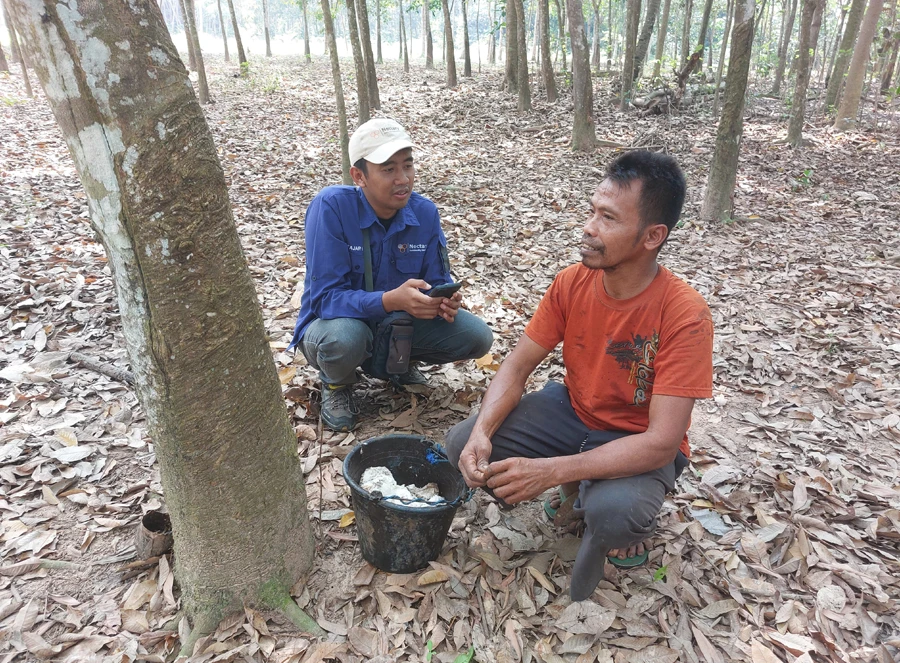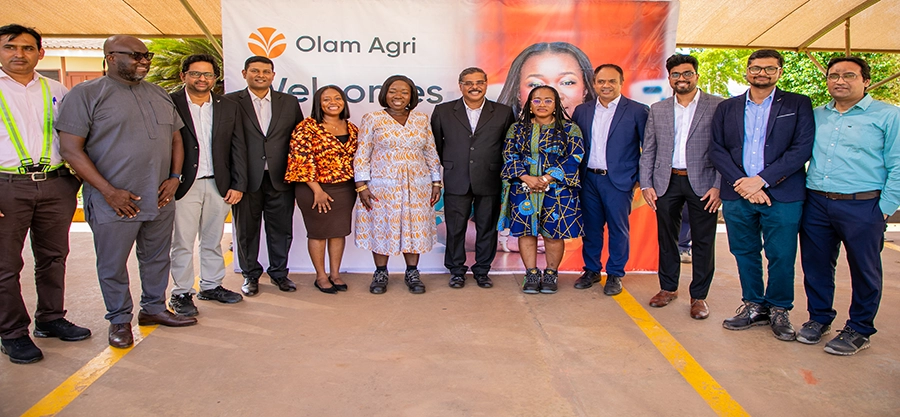Olam Agri and GIZ partner to launch the Sustainable Natural Rubber Initiative in Indonesia
Initiative aims at making smallholder rubber farming in Indonesia more competitive and sustainable
Singapore - Olam Agri, a leading food, feed, and fibre agri-business, has partnered with Deutsche Gesellschaft für Internationale Zusammenarbeit (GIZ) GmbH to launch the Sustainable Natural Rubber Initiative in Lampung Province, Indonesia. This initiative aims to enhance the competitiveness, sustainability and market inclusion of smallholder rubber farmers, and work towards deforestation-free rubber cultivation. It is part of the Sustainable Agriculture for Forest Ecosystems (SAFE) project, jointly funded by the European Union, the German Federal Ministry of Economic Cooperation and Development (BMZ), and the Ministry of Foreign Affairs of the Netherlands.
The Sustainable Natural Rubber Initiative will engage 2,000 smallholder farmers and provide them with training on best practices to improve yields and sustainability, strengthen their self-governing farmer organisations, and assist them with legality and landownership issues. It will also digitally map the land of 42,000 farmers via Global Positioning System (GPS) polygon mapping. This will enhance transparency and traceability thereby improving the competitiveness of rubber from the region, as well as help with environmental protection by assessing High-Conservation Value areas and promoting their consideration in local government development plans.
This partnership marks a significant step in our goal to make rubber production in Lampung more productive, more sustainable, and able to respond to international requirements such as the upcoming EU Deforestation Regulation (EUDR). The Sustainable Natural Rubber Initiative builds on our successful mapping of over 19,500 farmers in 2024 and expands our efforts to create lasting positive impact on the increased sustainable cultivation of rubber and on the livelihoods of smallholder farmers in Lampung as we open up new market opportunities.
Gaurav Gupta,
Vice-President & Business Head of Rubber (Southeast Asia) for Olam Agri
Working together with Olam Agri to ensure national rubber farmers can benefit from improved access to international markets. Partnerships along the supply chain are important to pass market information to the producers on the ground and provide a vital dialogue on an equal footing. With this partnership we aim to contribute to a more resilient and sustainable rubber production that provides sustainable livelihoods to the local communities, safeguards the environment, and contributes to the supply of sustainable natural rubber to international markets.
Jonas Dallinger,
GIZ Implementation Manager of the SAFE project in Indonesia

Farmer training will follow the Good Agricultural Practices framework to improve the quality of the harvest and yields of the 2,000 farmers and include “train the trainers” sessions to ensure the initiative is self-sustaining and scalable. In addition, the initiative will strengthen farmer organisations to achieve economies of scale and establish complaints and grievance mechanisms to increase equity in the supply chain.
It will also assist farmers in registering for the Smallholder Registration (Surat Tanda Daftar Budidaya/STDB) to confirm the legality and compliance of their cultivation activities, support traceability and legality of production plots, and facilitate long-term inclusion in international supply chains.
The Sustainable Natural Rubber Initiative follows the announcement in January 2025 of a Memorandum of Understanding (MoU) between GIZ and Olam Agri to scale up sustainable development in global agriculture and food. The MoU provided the framework that facilitated collaboration between the two partners and extends and deepens the long-standing partnership that GIZ and Olam Agri have shared over the past 15 years helping smallholder farmers become more productive, profitable, and sustainable.
To learn more about the SAFE project in Indonesia and beyond: SAFE - Team Europe Initiative on Deforestation-free Value Chains.






